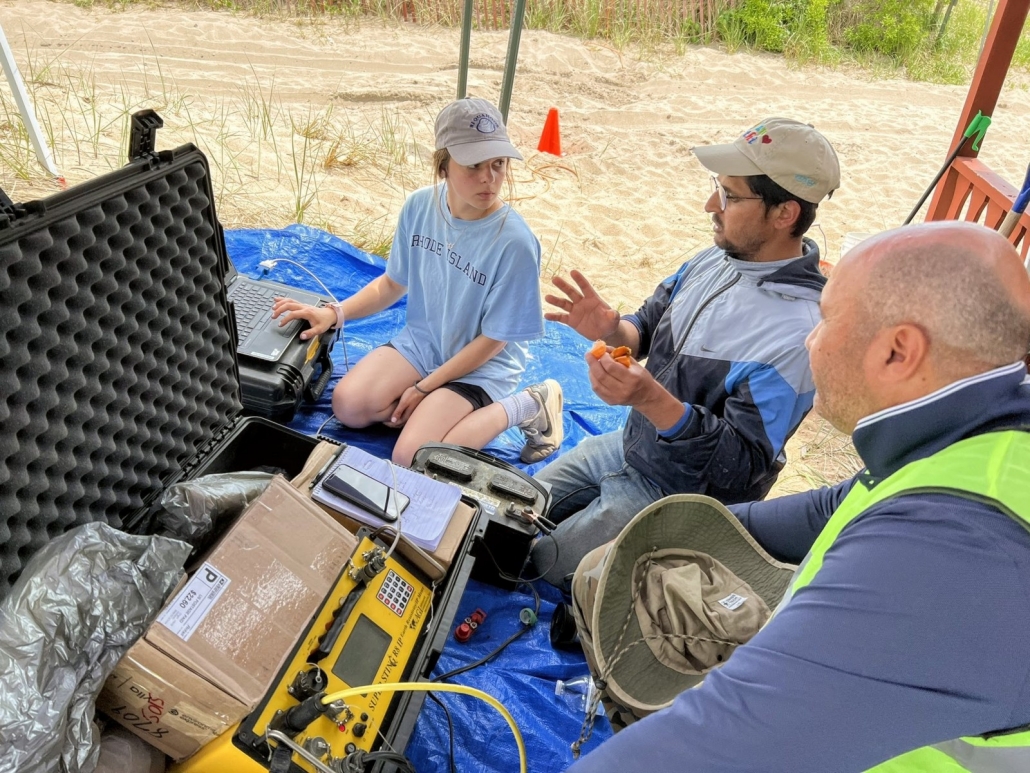Teaching
My teaching philosophy is based on the idea that effective teaching is informed by cutting-edge research and valuing students’ interests. I often bring my research into the classroom to make the class exciting and update students with the latest scientific developments. That way, students can understand science is not just a classroom theory but has something to do with solving real-world problems, while I learn from the students’ reactions to my research. Therefore, exposing students to a laboratory, both indoor and field scale, is one of my primary teaching styles.
Currently, I am serving as the instructor for Water Resource Engineering (CE550) in the Civil Engineering Department at Kansas State University. This is a 3-credit course that includes a laboratory component.
In the past, I have taught the following courses at the University of Rhode Island (as Teaching Assistant, Instructor of record and guest lecturer):
Watershed Hydrology (NRS461)
Hydrogeology (Geo583)
Environmental Hydrogeology (Geo584) – graduate course
Global Climate Change (GEO305G)
Landform: Origin and Evolution (GEO210)
Soil Geomorphology and Mapping (NRS471)
Understanding the Earth (Geo103)
Natural Resource Conservation (NRS100)
Research mentorship
I hold mentoring students in high regard as an integral facet of the educational process. Over time, I’ve mentored several undergraduate students, particularly those with an interest in groundwater hydrology.
Lately, I was honored to receive the NRES Fellowship from Kansas State University. Currently, I am actively engaged in mentoring students for their capstone project. This project is focused on examining the response of surface water quality to changes in landcover and variable saturation conditions. Our objective is to understand how different landcover types affect water quality. To achieve this, my team has selected three watersheds in Kansas, each representing a distinct landcover class: urban, grassland, and agricultural land. We plan to collect water samples from these watersheds both during prolonged dry periods and immediately after rain events to analyze nutrient levels and assess the impact of landcover changes on water quality.

In the fall of 2022, two undergraduates, mentored by me, collaborated on a project involving the development of a laboratory-scale groundwater model—a physical sand-tank setup designed to emulate coastal hydrology. I enjoy being a guide on the side rather than a sage on the stage.

Classroom demonstration

Field teaching
I enjoy teaching students in the field sites. Over the summer of 2021 and 2022, I taught several undergraduate students from the University of Rhode Island, and Puerto Rico in field measurements such as saltwater intrusion geophysics, well installation and monitoring, stream-gauging, etc.





